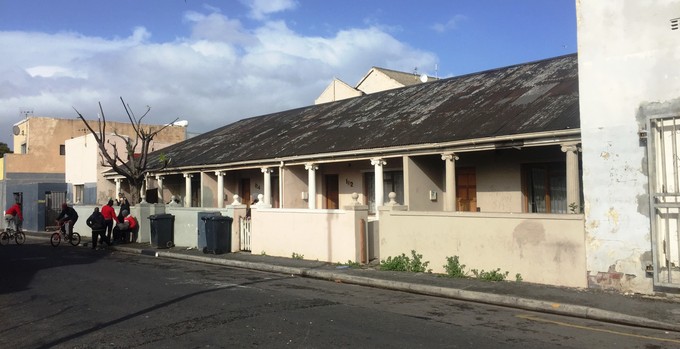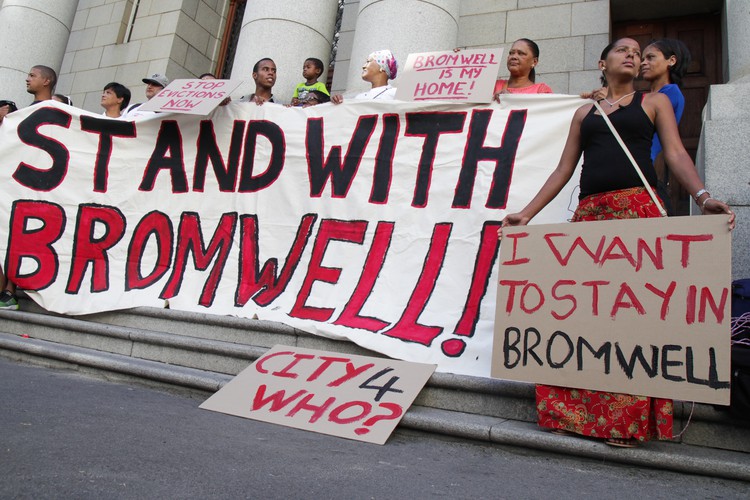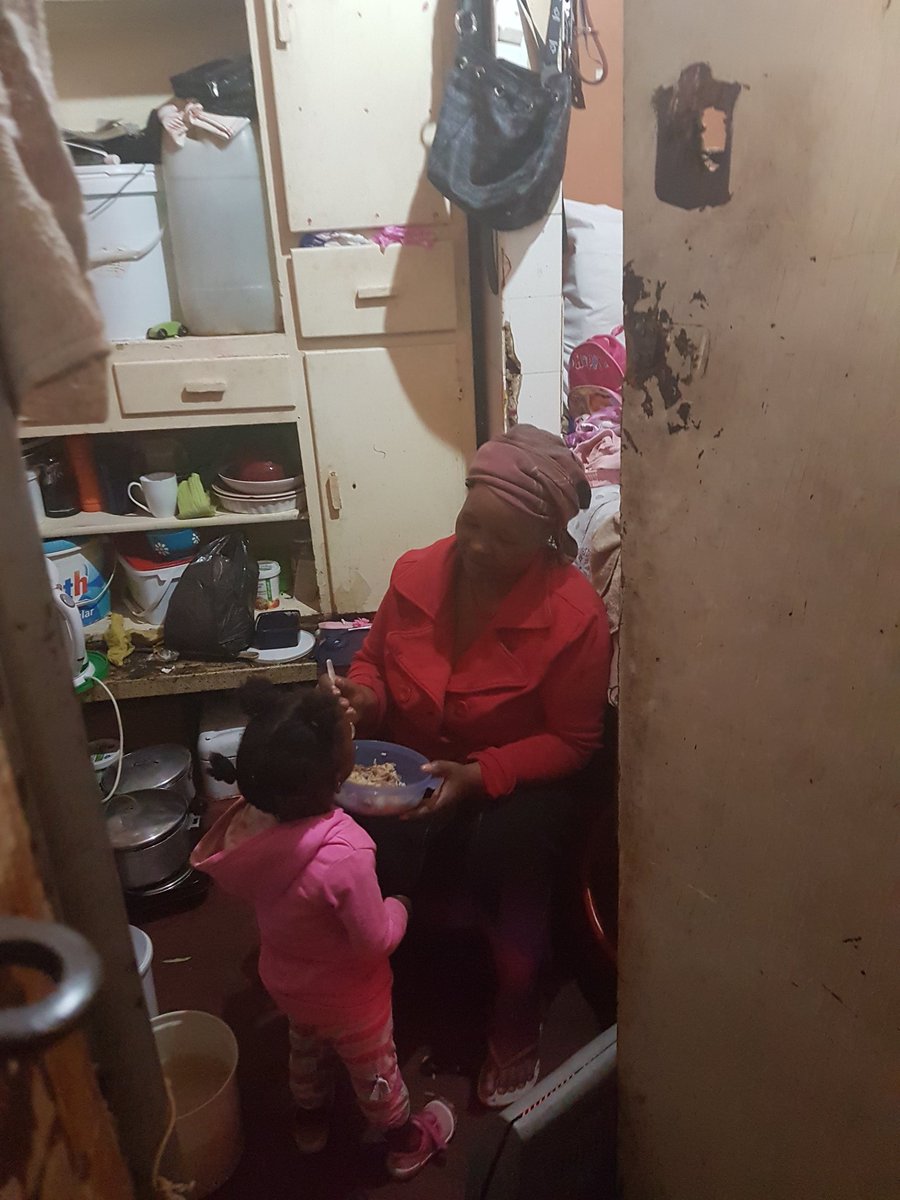
120-128 Bromwell Street
The Constitution of the Republic of South Africa consists of a Preamble and 14 chapters. Chapter 1 provides the “founding provisions” and opens: “The Republic of South Africa is one, sovereign, democratic state founded on the following values: Human dignity, the achievement of equality and the advancement of human rights and freedoms. Non-racialism and non-sexism. Supremacy of the Constitution and the rule of law. Universal adult suffrage, a national common voters roll, regular elections and a multi-party system of democratic government, to ensure accountability, responsiveness and openness.” It’s a promising beginning. Chapter 2 is titled “Bill of Rights” and begins: “This Bill of Rights is a cornerstone of democracy in South Africa. It enshrines the rights of all people in our country and affirms the democratic values of human dignity, equality and freedom. The state must respect, protect, promote and fulfil the rights in the Bill of Rights.” Section 26 of the Constitution, located in Chapter 2, concerns housing and so much more: “Housing: Everyone has the right to have access to adequate housing. The state must take reasonable legislative and other measures, within its available resources, to achieve the progressive realisation of this right. No one may be evicted from their home, or have their home demolished, without an order of court made after considering all the relevant circumstances. No legislation may permit arbitrary evictions.” This is one of only two occasions on which the Constitution discusses “home”. The other, Section 14, articulates the right to privacy: “Everyone has the right to privacy, which includes the right not to have their person or home searched.” There’s a great deal, though not enough, of discussion these days of `homelessness’. Recently, that condition has been somewhat refined by calling the loss of housing the state of being unhoused. While a welcome intervention, this still doesn’t tell us what home is.
Beyond the right to access to adequate housing and the right to not be arbitrarily evicted or have one’s home arbitrarily demolished, what is the State’s responsibility to something they, the inhabitants, residents, neighbors, community, call home? This is a particularly poignant question in a country marked by a history of forced mass dislocations, a description as apt for the United States, Brazil, India, England, as South Africa. Nevertheless, when the authors of the South African Constitution codified the right to housing, they remembered, acutely, the dislocations, demolitions and deprivations of housing and home under the apartheid regime. And today? Consider a court decision rendered today by the Supreme Court of Appeal of South Africa, concerning the rights of residents in the Woodstock neighborhood of Cape Town. While today’s decision may mark a turning point, it is not the end of the story.
For some, the story would start on October 30, 2013, when The Woodstock Hub bought 120 to 128 Bromwell Street. On June 30, 2014, residents were served eviction notices and given a month to clear out. Residents, 26 in all including children, began organizing. They went to court. In 2016, the Cape High Court decided in favor of the landlord. The residents’ attorneys argued that at the very least the City had an obligation to move the residents into nearby and adequate housing. Instead, the City proposed to move them to Wolwerivier, far from the city center and with absolutely no public transportation whatsoever. Woodstock, on the other hand, is one of the most centrally located suburbs in Cape Town, and while it managed to avoid forced removals in the 1950s, its location has meant wave upon wave of gentrification, displacement, and struggle. With that in mind, the residents and their attorneys appealed the decision.
In 2021, five years later, the Cape Town High Court decided that the City’s plan for removal to Wolwerivier was indeed unconstitutional. The Court ruled the City must find the residents emergency housing as near as feasibly possible and within the year. In response, The Woodstock Hub appealed, and that’s where we are today. Today, the Court ruled the City plan is not unconstitutional, because the earlier decision “did not identify the extent of invalidity for the City to rectify in its order.” On the other hand, the Court did say the City must provide adequate housing “in a location as near as possible to where they currently reside” before the end of May. It’s a mixed decision. Whether the residents will accept or appeal is unknown just now.
120 to 128 Bromwell Street has been, and is, home to these residents. Brenda Smith is 82 years old. She was born in 128 Bromwell Street. Today, she lives in 128 Bromwell Street. Charnell Commando is 36 years old. She has lived on Bromwell Street all her life. In fact, her parents, grandparents, and great grandparents also were born and lived at her current address. Graham Beukes, 42 years old, has lived all his life at his current Bromwell Street address, where his parents lived for 50 years. What `value’ does their history, do their lives, have? What is home?

(By Dan Moshenberg)
(Photo Credit 1: Rejul Bejoy / GroundUp) (Photo Credit 2: Ashraf Hendricks / GroundUp)
